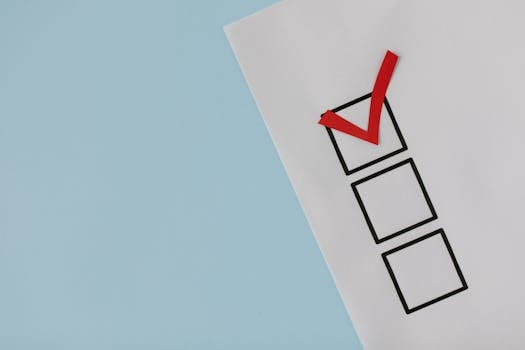What is goal evaluation?

What is Goal Evaluation?
Goal evaluation is a crucial step in the journey toward achieving personal and professional success. It serves as a compass, guiding you through the often winding paths of your goals. By regularly assessing your goals, you can enhance productivity, sharpen decision-making, and ultimately achieve better outcomes. Whether you’re a student aiming to improve your grades or a business professional striving for career advancement, understanding and engaging in effective goal evaluation can lead you to greater achievements.
Understanding the Concept of Goal Evaluation
What is Goal Evaluation?
At its core, goal evaluation is the process of assessing whether your goals have been met and determining how effectively you are progressing toward them. It involves a systematic approach to analyze the strategies you’ve employed and measure the outcomes achieved. This evaluation is not just about checking off items on a to-do list; it’s about understanding what worked, what didn’t, and why.
The significance of goal evaluation lies in its ability to provide insights into your progress and performance. When you evaluate your goals, you create a feedback loop that helps refine your methods and strategies, ultimately leading to better results. For more detailed insights into the process, you might find the GW HR guide on evaluating how goals are achieved useful.
Purpose of Goal Evaluation
So why should you engage in goal evaluation? The answer is multifaceted. First, it allows you to stay aligned with your objectives. As life changes, your goals may need to shift as well. Regular evaluations help ensure that your goals remain relevant and achievable.
Second, goal evaluation fosters accountability. By tracking your progress, you hold yourself responsible for your actions and decisions. This accountability can serve as a powerful motivator, pushing you to stay committed to your objectives.
Lastly, evaluating your goals can enhance your learning experience. Each evaluation session becomes an opportunity for reflection and self-improvement. More information on the importance of goal setting can be found in this Positive Psychology article.
The Goal Evaluation Process
Setting Specific Criteria for Evaluation
To effectively evaluate your goals, it’s essential to set clear and specific criteria. This means defining what success looks like for each goal. Are you measuring success by the number of tasks completed, the quality of the outcome, or perhaps the time taken to achieve it? The criteria you set should be measurable and relevant to your overall objectives.
For instance, if your goal is to increase your physical fitness, rather than saying “I want to get fit,” specify that you aim to run a 5K in under 30 minutes within three months. This specificity will not only guide your training but also provide a clear benchmark for evaluation.
Collecting and Analyzing Data
Once you have your criteria in place, the next step involves collecting data on your progress. This can be done through various methods, such as keeping a journal, using digital tracking tools, or conducting regular self-assessments.
Analyzing this data is where the real insights come into play. Look for patterns in your progress. Are there specific times during the week when you perform better? Do certain strategies lead to more successful outcomes? This analysis will help you understand what approaches yield the best results.
Assessing Results and Making Adjustments
After collecting and analyzing your data, it’s time to assess the results. Did you meet your goals? If not, what were the obstacles? Understanding these factors can help you adjust your strategies moving forward.
For example, if you find that you consistently miss deadlines due to poor time management, you might consider implementing new planning tools or techniques. Adjusting your goals based on evaluation results is crucial for maintaining motivation and staying on track.
Common Challenges in Goal Evaluation
Lack of Clarity and Specificity
One of the most significant obstacles you may face in goal evaluation is a lack of clarity in your goals. Vague goals can lead to confusion and hinder the evaluation process. If you’re not sure what you’re aiming for, it becomes nearly impossible to measure success. To overcome this challenge, ensure that your goals are clearly defined and specific.
Emotional Bias and Its Impact
Emotions can play a significant role in how we perceive our progress. When evaluating goals, it’s easy to let feelings cloud judgment. You might feel discouraged by a setback and overlook the small victories along the way. It’s essential to be objective during evaluations. Consider seeking feedback from peers or mentors who can provide an outside perspective.
Benefits of Regular Goal Evaluation
Enhancing Accountability
One of the most powerful benefits of goal evaluation is the enhancement of accountability. When you regularly assess your goals, you create a structure of responsibility. This accountability serves as a motivator, pushing you to stay committed and focused. It’s not just about the goals themselves; it’s about the journey and the discipline you develop along the way.
Improving Focus and Motivation
Regular evaluations help maintain your focus on your objectives. They can reignite your motivation when enthusiasm wanes. When you see how far you’ve come and how close you are to achieving your goals, it can spark renewed energy and commitment. Keeping your purpose clear and tangible is vital for long-term success.
Conclusion
In summary, goal evaluation is a fundamental component of effective personal and professional development. By understanding its importance, following a structured evaluation process, and overcoming common challenges, you can significantly enhance your productivity and decision-making abilities. So, take the time to evaluate your goals regularly; it’s an investment in your future success. Remember, the journey toward your objectives is just as important as the destination itself. Embrace the process, learn from your experiences, and keep pushing forward!